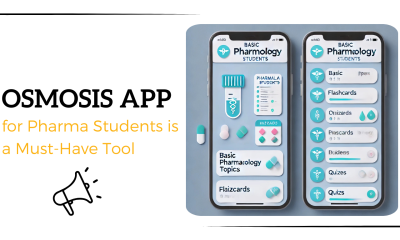Sustainable Living
Importance of Self-Love in Mental Health

Why Self-Love Matters for Mental Health
In today’s fast-paced world, self-love is often misunderstood or overlooked as an essential part of mental health. Many of us push ourselves to meet expectations, achieve goals, and care for others, often at the expense of our well-being. However, the importance of self-love in mental health cannot be understated. Self-love isn’t merely a trendy term; it’s a fundamental practice that influences how we think, feel, and respond to life’s challenges.
Awareness of the Importance of Self-Love in Mental Health
Being kind to yourself, accepting who you are completely, and caring about your own health are all components of self-love. Negative thought patterns like self-doubt, low self-esteem, and continual comparison with others are more likely to occur when we don’t love ourselves. Our mental health may suffer as a result of these emotions, which frequently result in tension, worry, or even depression. In order to lessen these problems, increase resilience, and promote emotional stability, it can be quite beneficial to acknowledge the role that self-love plays in mental health.
The Connection Between Self-Love and Emotional Resilience
How we respond to hardship is greatly influenced by our level of self-love. When we lack self-compassion, we may react harshly, blame ourselves, or feel like we’re never good enough. Life is full of obstacles and failures. Conversely, self-love is treating oneself with the same kindness that we would extend to a friend. By fostering emotional resilience, this compassion helps us see mistakes as chances for improvement and bounce back from setbacks faster.
Imagine being in a difficult circumstance, like failing to meet a goal or getting criticism. Someone who has a solid basis in self-love will probably react kindly, reminding oneself that one failure does not define who they are. Instead of considering oneself a failure, they will seek out lessons. Understanding the significance of self-love for mental health allows us to develop this positive self-perception, which increases resilience and makes it easier for us to deal with life’s unavoidable ups and downs.
Practical Ways to Cultivate Self-Love
Embracing self-love doesn’t happen overnight, especially if we’ve spent years being self-critical. However, incorporating small, intentional practices into daily life can make a substantial difference. Here are some ways to start:
- Positive Self-Talk: Pay attention to the way you talk to yourself. Replace harsh, judgmental thoughts with positive affirmations or gentle, supportive language. Remind yourself that it’s okay to make mistakes and that you are worthy of kindness.
- Setting Boundaries: Part of self-love is knowing when to say “no” and protecting your energy. Setting boundaries with work, relationships, and commitments helps you avoid burnout and prioritize your own mental health.
- Celebrate Small Wins: Often, we’re so focused on big goals that we forget to celebrate small achievements. Take a moment to acknowledge what you’ve accomplished, even if it’s something as simple as completing a daily task. Celebrating small wins builds self-confidence and reinforces self-love.
- Self-Compassion Practices: Activities like journaling, meditation, or mindful breathing can be powerful tools for building self-compassion. These practices help you connect with your emotions and cultivate a non-judgmental attitude toward yourself.
Self-Love and Its Role in Overcoming Mental Health Challenges
Individuals who understand the significance of loving oneself for mental health frequently experience an improvement in their emotional and psychological health over time. Self-love protects against common mental health issues like depression, anxiety, and stress. We develop inner serenity and stability when we treat ourselves with compassion and respect, which makes it simpler to deal with life’s obstacles without becoming overwhelmed by self-criticism.
Self-love acts as a counterbalance to the comparison culture and high expectations that might make us feel inadequate in today’s environment. When we embrace self-love, we begin to find satisfaction in our true selves and cease depending on approval from others. In addition to improving our mental health, this change enables us to face life with resilience, compassion, and self-assurance.
An essential first step to leading a healthy, satisfying life is realizing the significance of self-love for mental health. Self-love is not selfish; rather, it is necessary for mental health, emotional stability, and a positive self-image. Making self-love a priority allows us to develop a positive relationship with ourselves, which in turn improves our relationships with others and enables us to face life’s obstacles head-on. Take tiny, steady measures at first, and observe how self-love improves your general quality of life and mental health.
Lifestyle
Self-Compassion for Working Moms: Balancing Self-Care with Motherhood

Self-Compassion for Working Moms: Balancing Self-Care with Motherhood
In today’s fast-paced world, balancing the responsibilities of a career with the demands of motherhood can feel like an impossible juggling act. Working moms often find themselves overwhelmed with guilt—guilt for not spending enough time with their kids, guilt for not excelling at work, and even guilt for taking a moment for themselves. However, embracing Self-compassion for working moms can be a transformative approach to reduce guilt and enhance resilience, empowering working moms to thrive in both their professional and personal lives.
What is self-compassion?
Self-compassion for working moms, a concept developed by psychologist Kristin Neff, involves treating yourself with the same kindness, understanding, and support that you would offer a close friend. It means recognizing that mistakes and struggles are part of being human and not letting self-criticism take over. For working moms, self-compassion is about acknowledging the challenges of balancing work and family life without blaming yourself for not being “perfect.”
Why Self-Compassion is Crucial for Working Moms
1. Reduces Guilt
Working moms often feel they’re falling short in one area of their lives or another. Self-compassion helps reduce guilt by shifting the focus from perfection to progress. Instead of dwelling on what wasn’t accomplished, it allows moms to appreciate their efforts and celebrate small victories.
2. Enhances Resilience
Motherhood and a demanding career can be emotionally draining, but self-compassion builds resilience. By recognizing that setbacks are natural and giving yourself grace during tough times, you develop the emotional strength needed to bounce back.
3. Improves Overall Well-Being
Research shows that self-compassion is linked to lower levels of anxiety and depression. For working moms, this translates into better mental health, which benefits not only themselves but also their families and workplaces.
Tips for Cultivating Self-Compassion as a Working Mom
1. Practice Positive Self-Talk
Replace harsh inner criticism with kind, supportive statements. For example, instead of saying, “I’m such a bad mom for missing the school event,” try, “I’m doing my best, and my love for my child shows in many other ways.”
2. Set Realistic Expectations
Trying to do everything perfectly is a recipe for burnout. Prioritize what truly matters and let go of the pressure to excel in every area. Remember, it’s okay to ask for help or delegate tasks.
3. Take Time for Yourself
Self-care is not selfish; it’s essential. Whether it’s a quiet cup of coffee in the morning, a yoga class, or simply reading a book, taking time to recharge helps you show up as the best version of yourself for both work and family.
4. Connect with Other Moms
Sharing experiences with other working moms can provide a sense of community and understanding. Knowing you’re not alone in your struggles makes it easier to practice self-compassion.
5. Acknowledge Your Achievements
Take a moment each day to reflect on what you’ve accomplished. Whether it’s nailing a presentation at work or reading a bedtime story to your child, every effort counts.
The Ripple Effect of Self-Compassion
When working moms practice self-compassion, it doesn’t just benefit them—it also creates a positive ripple effect. Children learn from their parents, and a mom who models self-kindness teaches her kids to be kind to themselves. Moreover, a resilient and guilt-free mom contributes to a happier, healthier household.
Self-compassion for working moms isn’t a luxury—it’s a necessity. By embracing kindness toward yourself, setting realistic expectations, and making time for self-care, you can reduce guilt, enhance resilience, and lead a balanced life. Remember, being a good mom isn’t about doing it all; it’s about doing your best while taking care of yourself along the way.
Lifestyle
Extreme Dry Skin Care Tips for Winter Season

Winter Skincare Tips for Extreme Dry Skin
When winter arrives, people with extremely dry skin often face a tough challenge in keeping their skin hydrated and comfortable. The cold, dry outdoor air and the artificial warmth from indoor heating can be harsh on the skin, stripping it of essential moisture. This leaves the skin feeling tight, flaky, and often very irritated. If you suffer from extreme dry skin, A typical skincare regimen might not be sufficient. In order to maintain the skin barrier strong during the colder months, winter necessitates a specific skincare regimen that emphasizes deep hydration and protection.
Tips for Extreme Dry Skin
Use a mild moisturizing cleanser
The first step in treating extreme dry skin is to use a mild, moisturizing cleanser. As the last thing anyone with dry skin needs in the winter, harsh sulfates or chemicals included in many everyday cleansers can deplete the skin’s natural oils. Choose an oil-based or cream-based cleanser instead. Without eliminating essential oils, these cleansers effectively remove grime and contaminants. Your skin barrier should be intact if it feels balanced and soft after washing rather than tight or uncomfortable.
Hydration
Applying more hydration is the next step after cleansing your skin. This calls for the use of goods that draw in, retain, and shield moisture. Start with a moisturizing serum that contains glycerin or hyaluronic acid. As humectants, these substances help to plump up and lessen dry skin by attracting moisture from the atmosphere. Use a thick moisturizer made specifically for dry skin after using your serum. Ceramides, which form the foundation of the skin barrier and aid in preventing moisture loss, are among the substances to look for. Shea butter and cocoa butter are also excellent for rehydrating dry skin and providing a natural boost.
Face Oil
A face oil is also something to think about if you have extremely dry skin. As the last step in your skincare routine, applying a face oil helps seal in all the moisture from the products that come before it. Oils that lock moisture into the skin without clogging pores, such jojoba, squalane, or argan, are lightweight but incredibly efficient. For best absorption, use a small amount and gently push it into your face.
Barrier cream
Using a barrier cream is another good idea, particularly if you will be spending time outside. By covering the skin with a protective layer, these products insulate it from chilly air and stop moisture loss. Because they are so good at retaining moisture and protecting skin from environmental stressors, ingredients like beeswax, lanolin, and petrolatum are frequently found in barrier creams.
Remember to include weekly treatments in addition to your regular schedule. A moisturizing mask applied once or twice a week can provide extremely dry skin with an additional moisture boost. In order to soothe and moisturize, look for masks that contain hyaluronic acid, aloe vera, or oat extract. Because sleeping masks provide tremendous moisture over night, they are also an excellent wintertime alternative.
Think about environmental modifications in addition to skincare products. For dry skin, a humidifier can significantly improve indoor air quality by adding moisture. Since strong soaps and hot water tend to strip the skin of its natural oils, lowering the shower’s water temperature and using mild soaps can also help lessen dryness.
Your skin can stay smooth and supple throughout the winter months if you adhere to these skincare recommendations.
-

 Healthy Habits6 months ago
Healthy Habits6 months ago5 Morning Routines for Maximum Energy
-

 Healthy Habits6 months ago
Healthy Habits6 months agoBest 6 Ways to Stay Mentally and Physically Healthy
-

 Stress Management6 months ago
Stress Management6 months agoBalancing Multiple Roles: How Trying to Be the Best in All Areas Leads to Feeling Stretched
-

 Mindfulness7 months ago
Mindfulness7 months agoMindfulness
-

 Mindfulness6 months ago
Mindfulness6 months ago“Practice of Mindfulness: Unlock the Power of Empowering Self”.
-

 Meditation Practices6 months ago
Meditation Practices6 months agoOsmosis App for Pharma Students is a Must-Have Tool
-

 Healthy Habits6 months ago
Healthy Habits6 months agoMenstrual Cycle Journal to Empower Your Health
-

 Lifestyle6 months ago
Lifestyle6 months agoSelf-Compassion for Working Moms: Balancing Self-Care with Motherhood













